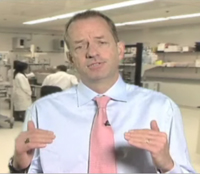GlaxoSmithKline has put a twist on pharma’s strategy of slashing sales reps to improve the earnings outlook, reallocating the positions to emerging markets.
Last year, the company announced a 12% reduction in sales forces. In a third-quarter earnings presentation recapping the firm’s return to top-line growth, CEO Andrew Witty said his company’s growth strategy involves shifting some of those US and European sales roles over to Asia-Pacific and emerging markets.
“Just over the last year or so,” the chief executive said in a Web video, “we’ve reduced by around 2,200 the number of sales personnel in our established western markets, and we’ve increased by around 2,200 the number of sales personnel in our emerging and Asia-Pacific markets—that’s a good example of how we are reallocating resources to go for growth.”
The shifts are reflected in quarterly sales, up 3% overall, 25% in emerging markets and 19% in Japan. That’s due to growth in pandemic flu vaccine and anti-viral Relenza, which is getting more government orders for swine flu, along with devices.
Meanwhile, growth is moderating in mature regions. Less than a third of total sales came from the “small white pills/Western markets” of the US and Europe, the company said.
The company is also executing on its pipeline. In the last two weeks, it has received FDA approvals for cervical cancer vaccine Cervarix, oncology drug Votrient and Arzerra for oncology and rheuatmoid arthritis. Recent data on lupus drug Benlysta, with partner Human Genome Sciences, also look interesting.
As Witty sees it, simplifying the business model will remain a strong focus: “We continue to look for ways to drive greater efficiency and disinvest in areas which we believe no longer serve us well.”







